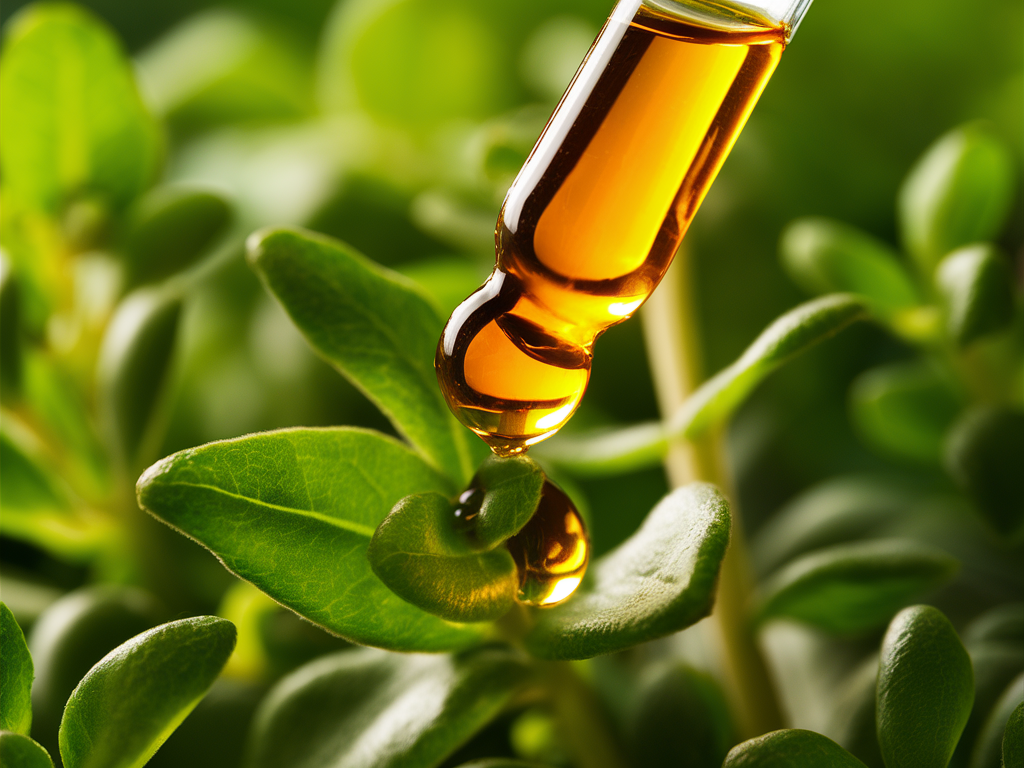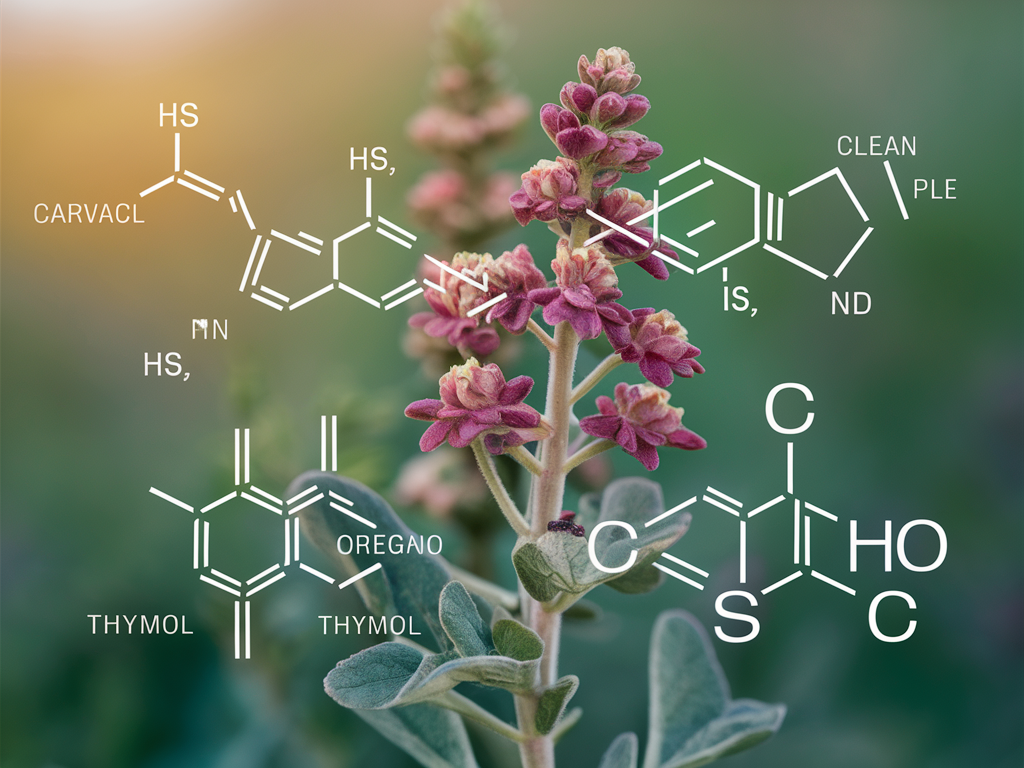Oil of oregano is a potent natural extract that has been utilized for centuries as a traditional remedy for various ailments. In recent years, scientific research has increasingly focused on understanding the medicinal properties of this remarkable essential oil. The active compounds in oregano oil, particularly carvacrol and thymol, demonstrate impressive therapeutic potential across multiple health applications. From fighting infections to supporting immune function, this powerful botanical extract is gaining recognition in the scientific community for its diverse health benefits.
What is Oil of Oregano?
Oil of oregano is derived from the leaves and flowers of the Origanum vulgare plant, a member of the mint family (Lamiaceae). It’s important to distinguish between culinary oregano, which we commonly use in Mediterranean cooking, and the medicinal oregano species used to produce therapeutic-grade essential oil. While they belong to the same botanical family, the oregano species used for medicinal oil (particularly Origanum vulgare and Thymus capitatus) contain significantly higher concentrations of active compounds.
The primary bioactive components in oil of oregano are carvacrol and thymol, phenolic compounds that contribute to its powerful biological activities. These compounds constitute between 60-80% of high-quality oregano oil and are responsible for many of its therapeutic effects. Additionally, the oil contains other beneficial compounds including rosmarinic acid, ursolic acid, and various flavonoids.
Historically, oregano has been used in traditional medicine systems across the Mediterranean region, particularly in Greek and Egyptian healing practices. Ancient physicians prescribed oregano for various conditions including respiratory issues, digestive complaints, and pain relief. Today, modern research is validating many of these traditional applications with scientific evidence.

Benefit #1: Powerful Antimicrobial Properties
One of the most well-documented benefits of oil of oregano is its remarkable antimicrobial activity. Multiple scientific studies have demonstrated its effectiveness against a wide range of bacteria, including many strains that have developed resistance to conventional antibiotics.
Research published in the Journal of Medicinal Food found that oregano oil showed significant activity against 23 different bacterial species. Particularly noteworthy is its effectiveness against problematic pathogens like Staphylococcus aureus (including MRSA strains), Escherichia coli, and Pseudomonas aeruginosa.
The primary mechanism behind this antibacterial action involves carvacrol’s ability to disrupt bacterial cell membranes. This compound interferes with the structural integrity of bacterial cell walls, causing leakage of cellular materials and ultimately cell death. What makes this particularly valuable is that, unlike many conventional antibiotics that target specific cellular processes, oregano oil’s mechanism makes it difficult for bacteria to develop resistance.
Comparative studies have shown that in some cases, oregano oil can be as effective as certain antibiotics but with the advantage of fewer side effects and less likelihood of contributing to antimicrobial resistance – a growing global health concern.
Benefit #2: Antiviral Capabilities
Beyond bacteria, oil of oregano has demonstrated significant antiviral properties. Research indicates that it may be effective against a variety of viral infections, particularly those affecting the respiratory system.
A study published in the Journal of Applied Microbiology found that carvacrol and thymol could inactivate human norovirus within one hour of exposure. Another research paper in Phytotherapy Research documented oregano oil’s effectiveness against herpes simplex virus type 1 (HSV-1), the virus responsible for cold sores.
The antiviral mechanism appears to involve disruption of the viral envelope and interference with viral replication processes. This makes oregano oil potentially valuable during cold and flu season as a complementary approach to preventing and addressing viral infections.
While oregano oil shouldn’t replace medical treatment for serious viral infections, growing evidence suggests it may serve as a valuable adjunctive therapy, particularly for common respiratory viral infections where treatment options are often limited.
Benefit #3: Antifungal Effects
Oil of oregano demonstrates potent antifungal properties, making it effective against various fungal infections. Its activity against Candida species, including Candida albicans (the fungus responsible for most yeast infections), is particularly well-documented.
Research published in the Canadian Journal of Microbiology demonstrated that oregano oil completely stopped the growth of Candida albicans at relatively low concentrations. In some comparative studies, oregano oil has shown effectiveness comparable to conventional antifungal medications, but through different mechanisms of action.
The antifungal activity stems from carvacrol and thymol’s ability to disrupt fungal cell wall integrity and interfere with critical enzymes needed for fungal growth and survival. This makes oregano oil particularly valuable for addressing superficial fungal infections affecting the skin and nails, as well as internal candida overgrowth.
Many practitioners recommend oregano oil as part of comprehensive protocols for addressing candida overgrowth, nail fungus (onychomycosis), athlete’s foot, and other common fungal conditions.
Benefit #4: Anti-inflammatory Effects
Chronic inflammation underlies many health conditions, from arthritis to cardiovascular disease. Oil of oregano contains compounds with significant anti-inflammatory properties that may help mitigate inflammatory processes in the body.
Studies have shown that carvacrol can inhibit the production of pro-inflammatory cytokines and modulate the activity of enzymes involved in the inflammatory cascade. Research published in the British Journal of Nutrition demonstrated that carvacrol could reduce inflammation in animal models of colitis, suggesting potential applications for inflammatory bowel conditions.
While not as potent as prescription anti-inflammatory medications, oregano oil offers the advantage of fewer side effects than NSAIDs like ibuprofen, which can cause gastrointestinal issues and other adverse effects with long-term use. Some research suggests that oregano oil’s anti-inflammatory effects may be particularly beneficial for conditions affecting the digestive tract, respiratory system, and joints.
The combined anti-inflammatory and antimicrobial properties make oregano oil particularly valuable for addressing inflammatory conditions with an infectious component.

Benefit #5: Antioxidant Properties
Oxidative stress plays a significant role in aging and the development of numerous chronic diseases. Oil of oregano contains powerful antioxidant compounds that help neutralize free radicals and protect cells from oxidative damage.
Research published in the Journal of Agricultural and Food Chemistry revealed that oregano oil has one of the highest antioxidant activities among aromatic herbs, with an oxygen radical absorbance capacity (ORAC) value higher than many other well-known antioxidant foods. The primary compounds responsible for this antioxidant activity include carvacrol, thymol, and various phenolic acids.
These antioxidants help protect cellular structures, including DNA, proteins, and cell membranes, from damage caused by reactive oxygen species. This protective effect may contribute to oregano oil’s potential role in promoting longevity and reducing the risk of age-related degenerative conditions.
The antioxidant properties of oregano oil complement its antimicrobial effects, as oxidative stress often accompanies infectious processes. This dual action makes oregano oil particularly valuable in supporting the body’s defense and recovery mechanisms.
Benefit #6: Digestive Health Support
Digestive complaints are among the most common health issues worldwide, and oil of oregano offers multiple benefits for gastrointestinal health. Traditional medicine systems have long used oregano for digestive support, and modern research is validating these applications.
Studies suggest that oregano oil may help alleviate symptoms of irritable bowel syndrome (IBS) and other functional digestive disorders. Its carminative properties help reduce bloating and gas, while its antispasmodic effects can help relieve intestinal cramping.
Research published in Experimental and Toxicologic Pathology found that oregano oil could protect against intestinal damage and improve symptoms in experimental models of colitis. The oil’s ability to modulate gut microbiota also appears beneficial, as it can help reduce harmful bacterial overgrowth while potentially preserving beneficial flora when used appropriately.
The combined antimicrobial, anti-inflammatory, and antispasmodic properties make oregano oil particularly valuable for addressing complex digestive issues with multiple underlying factors.
Benefit #7: Parasite Fighting Abilities
Intestinal parasites affect millions of people worldwide and can cause significant health problems. Oil of oregano has demonstrated impressive antiparasitic effects against various common parasites.
Research published in Phytotherapy Research showed that oregano oil was effective against Giardia duodenalis, a common intestinal parasite that causes giardiasis. Another study in the Journal of Agricultural and Food Chemistry found that carvacrol could effectively eliminate another intestinal parasite, Blastocystis hominis.
Traditionally, oregano oil has been used in many cultures as a natural remedy for intestinal worms and other parasitic infections. Its mechanism of action appears to involve disruption of the parasites’ cellular membranes and interference with their reproductive cycles.
While severe parasitic infections require medical treatment, oregano oil may serve as an effective preventative measure or complementary approach in mild cases. Some integrative practitioners use oregano oil as part of comprehensive parasite cleansing protocols, often in combination with other antiparasitic herbs.
Benefit #8: Immune System Support
Beyond its direct antimicrobial effects, oil of oregano appears to support immune function through multiple mechanisms. This immune-modulating activity may enhance the body’s natural defenses against various pathogens.
Research indicates that compounds in oregano oil can stimulate the production and activity of white blood cells, particularly macrophages and neutrophils, which play crucial roles in identifying and eliminating pathogens. Additionally, its antioxidant properties help protect immune cells from oxidative damage during inflammatory responses.
Studies conducted during cold and flu season suggest that regular use of oregano oil may reduce the incidence and severity of respiratory infections. This effect likely stems from both direct antimicrobial activity and enhanced immune function.
Oregano oil appears to work synergistically with other immune-supporting compounds, including vitamin C, zinc, and elderberry extract, making it a valuable component of comprehensive immune support protocols.
Benefit #9: Respiratory Health Benefits
Respiratory conditions, from common colds to more serious infections, can significantly impact quality of life. Oil of oregano offers multiple benefits for respiratory health through various mechanisms.
Research published in Evidence-Based Complementary and Alternative Medicine demonstrated that oregano oil could reduce airway inflammation and hyperresponsiveness in animal models of asthma. Its expectorant properties help thin and loosen mucus, making it easier to clear congestion from the respiratory tract.
The combined antimicrobial, anti-inflammatory, and expectorant effects make oregano oil particularly valuable for addressing respiratory infections. Inhalation of diluted oregano oil steam or use of oregano oil capsules may help alleviate symptoms of sinusitis, bronchitis, and other respiratory conditions.
Traditional uses of oregano for respiratory health include steam inhalation for congestion, throat gargles for sore throats, and internal consumption for systemic effects against respiratory pathogens.

Benefit #10: Pain Relief Properties
Chronic pain affects millions of people worldwide, and many conventional pain medications carry risks of serious side effects. Oil of oregano exhibits analgesic (pain-relieving) properties that may offer a complementary approach to pain management.
Studies have shown that carvacrol can activate TRPV3, a receptor involved in pain perception and temperature sensing. This activation can actually decrease pain sensitivity through a complex neurological mechanism. Research published in the British Journal of Pharmacology demonstrated that carvacrol reduced pain response in various experimental models.
When applied topically in diluted form, oregano oil can help relieve muscle and joint pain through both analgesic and anti-inflammatory mechanisms. Some studies indicate it may be particularly effective for inflammatory pain conditions.
While oregano oil isn’t potent enough to replace prescription pain medications for severe pain, it may serve as a valuable adjunctive therapy or alternative for mild to moderate pain, especially when conventional treatments are contraindicated or cause problematic side effects.
Benefit #11: Cardiovascular Support
Cardiovascular disease remains the leading cause of death worldwide, making heart-healthy natural compounds increasingly valuable. Emerging research suggests that oil of oregano may offer several benefits for cardiovascular health.
Studies have shown that carvacrol can help improve lipid profiles by reducing total cholesterol and low-density lipoprotein (LDL) levels while potentially increasing high-density lipoprotein (HDL). Research published in the British Journal of Nutrition demonstrated that oregano extract could reduce inflammation in the cardiovascular system and improve lipid metabolism.
Additionally, the antioxidant properties of oregano oil help prevent oxidation of LDL cholesterol, a critical step in the development of atherosclerosis. Some research also suggests that oregano oil may help regulate blood pressure through effects on vascular smooth muscle.
While more research is needed to fully understand oregano oil’s cardiovascular benefits, its antioxidant, anti-inflammatory, and lipid-modulating effects make it a promising natural support for heart health as part of a comprehensive approach.
Benefit #12: Cancer-Fighting Potential
Perhaps the most preliminary but intriguing area of oregano oil research involves its potential anticancer properties. Several laboratory studies have demonstrated that carvacrol and other compounds in oregano oil may have inhibitory effects on cancer cells.
Research published in Anticancer Research found that carvacrol could induce apoptosis (programmed cell death) in human colon cancer cells. Another study in Molecular and Cellular Biochemistry showed similar effects against prostate cancer cells. These effects appear to involve multiple mechanisms, including antioxidant protection, inhibition of cancer cell growth signals, and direct induction of cancer cell death.
It’s important to note that most research in this area has been conducted in laboratory settings using cell cultures or animal models. Clinical human studies are still lacking, and oregano oil should not be considered a replacement for conventional cancer treatments.
However, the emerging research suggests potential preventative benefits and possible supportive roles alongside conventional treatments. As with many promising natural compounds, more research is needed to fully understand oregano oil’s potential in cancer prevention and treatment.
How to Use Oil of Oregano Safely
Oil of oregano is available in several forms, each with specific applications and considerations. The most common forms include:
- Liquid drops: Concentrated essential oil that must be diluted before use
- Capsules: Pre-measured doses for internal use
- Softgels: Often mixed with carrier oils for improved absorption
- Topical preparations: Diluted in carrier oils for external application
For internal use, recommended dosages typically range from 200-600mg of oregano oil daily, divided into multiple doses. When using liquid oregano oil internally, it should always be diluted in a carrier oil or liquid to prevent irritation of mucous membranes. A typical dilution is 1-3 drops in a teaspoon of olive oil or mixed in water.
For topical applications, oregano oil should be diluted to a 1% concentration or less (approximately 1 drop of oregano oil per teaspoon of carrier oil). Always perform a patch test before widespread application to check for sensitivity.
Quality considerations are paramount when purchasing oregano oil. Look for products that:
- Specify the carvacrol content (ideally 70% or higher)
- Are derived from Origanum vulgare or Thymus capitatus
- Are certified organic to avoid pesticide contamination
- Use steam distillation rather than chemical extraction methods
- Come in dark glass bottles to protect from light degradation
Most practitioners recommend using oregano oil in cycles rather than continuously. A common approach is 2-3 weeks of use followed by a one-week break, with a maximum of three cycles before a longer break of several months.
Potential Side Effects and Precautions
While oil of oregano offers numerous health benefits, it’s a potent botanical that requires appropriate caution. Potential side effects and important precautions include:
Contraindications: Oregano oil is contraindicated during pregnancy as it may stimulate blood flow to the uterus and potentially affect pregnancy. It should also be avoided during breastfeeding as components may pass into breast milk.
Allergic reactions: Individuals with allergies to plants in the Lamiaceae family (mint, basil, sage, etc.) may experience allergic reactions to oregano oil. Symptoms can range from skin irritation to respiratory issues in sensitive individuals.
Digestive discomfort: High doses can cause stomach upset, burning sensation, or nausea, particularly when taken undiluted.
Blood-thinning effects: Oregano oil may have mild blood-thinning properties and should be discontinued at least two weeks before scheduled surgery. It should be used cautiously by individuals on prescription blood thinners like warfarin.
Drug interactions: Oregano oil may interact with diabetes medications, anticoagulants, and certain antibiotics. Always consult with a healthcare provider before combining oregano oil with prescription medications.
Impact on beneficial bacteria: Extended use of high doses can potentially impact beneficial gut bacteria. Probiotic supplementation is often recommended during oregano oil treatment.
Due to its potency, oregano oil is generally not recommended for children under 5 years of age without professional guidance. For older children, doses should be adjusted based on weight and used under supervision.
Conclusion
Oil of oregano stands as one of nature’s most powerful botanical medicines, with scientific research increasingly validating its diverse therapeutic applications. From its remarkable antimicrobial properties to its promising potential in areas like cardiovascular health and cancer prevention, oregano oil offers a spectrum of benefits supported by both traditional wisdom and modern science.
The 12 benefits explored in this article represent the current understanding of oregano oil’s therapeutic potential. While some applications, like its antimicrobial effects, are well-established with substantial research, others remain emerging areas that warrant further investigation. As with any natural remedy, the quality of evidence varies across different applications.
For those interested in incorporating oregano oil into their wellness routine, a balanced approach is essential. This powerful botanical is best viewed as a complementary tool rather than a replacement for conventional medical care for serious conditions. When used appropriately with awareness of proper dosing, potential contraindications, and quality considerations, oil of oregano can be a valuable addition to a comprehensive health regimen.
As scientific research continues to advance our understanding of botanical medicines, oil of oregano will likely reveal even more about its therapeutic potential. Future studies focusing on specific applications, optimal dosing protocols, and long-term safety will further clarify its role in natural medicine and potentially expand its applications in both preventative health and disease management.

